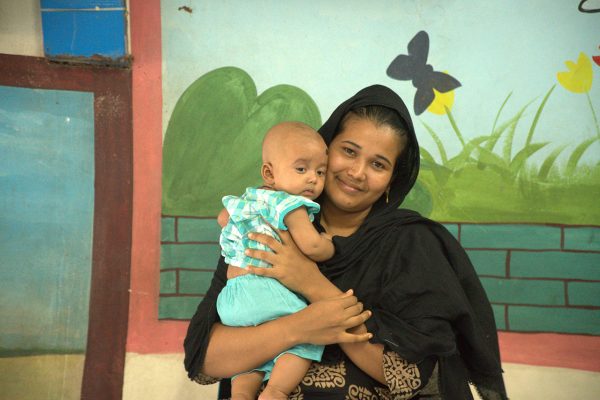Reading Time: 3 minutes
Bangladesh, Malawi and Nepal have been highlighted in a new UNICEF report as three countries on track to meet their child survival targets, incorporated in MDG 4 that aims to reduce under-5 deaths worldwide to a third of their 1990 levels by 2015.
Bangladesh, Malawi and Nepal have been highlighted in a new UNICEF report as three countries on track to meet their child survival targets, incorporated in MDG 4 that aims to reduce under-5 deaths worldwide to a third of their 1990 levels by 2015. The UNICEF report states that the number of under-5 deaths worldwide has declined from nearly 12 million in 1990 to 6.9 million in 2011. That still implies the deaths of 19,000 children under the age of 5 everyday in 2011. The highest rates of child mortality persist in Sub-Saharan Africa and Southern Asia, where under-5 deaths are now increasingly concentrated. India (24 percent) and Nigeria (11 percent) together account for more than a third of all under-5 deaths.It is perhaps prudent at this stage to consider some of what has worked in countries like Bangladesh, which was among 16 countries recognized by the UN two years ago for being on track to achieve MDG 4. The award was picked up by Prime Minister Sheikh Hasina during the UNGA Summit in New York in 2010, but there can be no doubt about the fact that it was actually recognition for years of effort from a whole range of actors, including government agencies, international donors, and NGOs like BRAC. Indeed, speaking on the same occasion, BRAC founder and chairperson Sir Fazle Hasan Abed pledged to mobilize some $700 million over the next five years to help achieve MDG 4 in Bangladesh, Pakistan, Uganda, Afghanistan, Liberia, Sierra Leone, Southern Sudan, Tanzania and Haiti – all countries in which BRAC operates.But it is in Bangladesh of course, that BRAC’s interventions have reached the greatest maturity, with years of work having gone into providing support to pregnant women in rural Bangladesh, and more recently in urban areas through the Manoshi program supported by the Bill & Melinda Gates Foundation. In 2007, with the help of development partners, BRAC started concentrating its efforts on improving maternal, neonatal and child mortality in specific urban and rural areas through two projects – Manoshi in urban areas and Improving Maternal, Neonatal and Child Survival (IMNCS) in rural areas. The programmes comprise a well supervised system of ante and post natal care with trained community health workers and a well functioning referral system to health clinics for complicated cases. IMNCS currently reaches 20 million women in 10 districts while Manoshi reaches 5.7 million women in slums across Dhaka and 5 other city corporations in addition to providing access to safe and hygienic birthing huts as alternatives to home delivery.
For the period of 2007-2010, in areas where Manoshi operates, monitoring of progress showed reduction in home delivery from 86% to 25%, a neonatal mortality of 14 (per 1000 births) and maternal mortality of 162 (per 100,000 births). In the IMNCS areas, progress over the same period showed increase in hospital delivery from 15 to 30%, and reduction of maternal mortality to 157 per 100,000 cases.
Manoshi and IMNCS of course are just the latest incarnations of BRAC’s groundbreaking work in delivering workable health solutions in conditions of otherwise extreme poverty. Starting in 1979, and throughout the 1980s, BRAC revolutionized the prevention of diarrhoea – the leading cause of the high child mortality rate in Bangladesh – by establishing its Oral Therapy Extension Program. Bangladesh today has one of the highest rates of usage of oral rehydration in the world, and its contribution to Bangladesh’s looming success in achieving MDG 4 cannot be underestimated. BRAC also played a leading role in the expansion of vaccination programs nationwide to ensure that all children get vaccinated against certain diseases in the first year after birth.
BRAC’s community-based approach to providing healthcare, that employs community health resources, (Shasthya Shebika, Shasthya Kormi, Newborn Health Worker and Community Skilled Birth Attendant), to provide basic primary healthcare at the community level, to working with village health committees to motivate behavior change in the community, shows what can be achieved even in conditions typified by low growth and lack of development. Despite myriad problems preventing it from quite reaching its overall potential, Bangladesh is doing remarkably well in terms of keeping its promise to its children, as well as its mothers. BRAC continues to be at the forefront of keeping the promise.
By Shayan S. Khan,
Strategic Communications Specialist at BRAC





